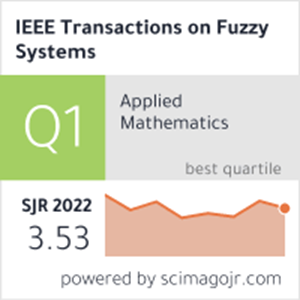Event-Triggered Data-Driven Iterative Learning Control for Nonlinear MASs Under Switching Topologies
IF 10.7
1区 计算机科学
Q1 COMPUTER SCIENCE, ARTIFICIAL INTELLIGENCE
引用次数: 0
Abstract
This article aims to address the problem of distributed model-free adaptive iterative learning control for nonlinear discrete-time multiagent systems under switching topologies. To save valuable bandwidth in the wireless channel without sacrificing system performance, an event-triggered iterative learning control strategy is established and employed, where information is only transmitted at triggered instants. First, by virtue of the dynamic linearization technology, the controlled system can be converted into a linear model to construct the controller structure. Second, a model-free adaptive iterative learning consensus control scheme is proposed merely employing the input and output data, in which better tracking performance can be attained by learning the previous experience. Third, a dynamic event-triggered mechanism along the iteration domain is set up to deal with the limited bandwidth issue, effectively saving communication resources. Unlike most model-free adaptive control results, the constructed distributed controller is designed based on controller-dynamic-linearization approach to deal with the controller structure design issue without designing the cost function, making it more convenient in solving tracking control issues for multiagent systems under iteration-switching communication topologies, which is more suitable for the actual environment. Using graph theory and the contraction mapping principle, the convergence of tracking control errors is theoretically analyzed. Ultimately, the effectiveness of the established control schemes is illustrated through two simulation examples.切换拓扑下非线性质量的事件触发数据驱动迭代学习控制
本文章由计算机程序翻译,如有差异,请以英文原文为准。
求助全文
约1分钟内获得全文
求助全文
来源期刊

IEEE Transactions on Fuzzy Systems
工程技术-工程:电子与电气
CiteScore
20.50
自引率
13.40%
发文量
517
审稿时长
3.0 months
期刊介绍:
The IEEE Transactions on Fuzzy Systems is a scholarly journal that focuses on the theory, design, and application of fuzzy systems. It aims to publish high-quality technical papers that contribute significant technical knowledge and exploratory developments in the field of fuzzy systems. The journal particularly emphasizes engineering systems and scientific applications. In addition to research articles, the Transactions also includes a letters section featuring current information, comments, and rebuttals related to published papers.
 求助内容:
求助内容: 应助结果提醒方式:
应助结果提醒方式:


